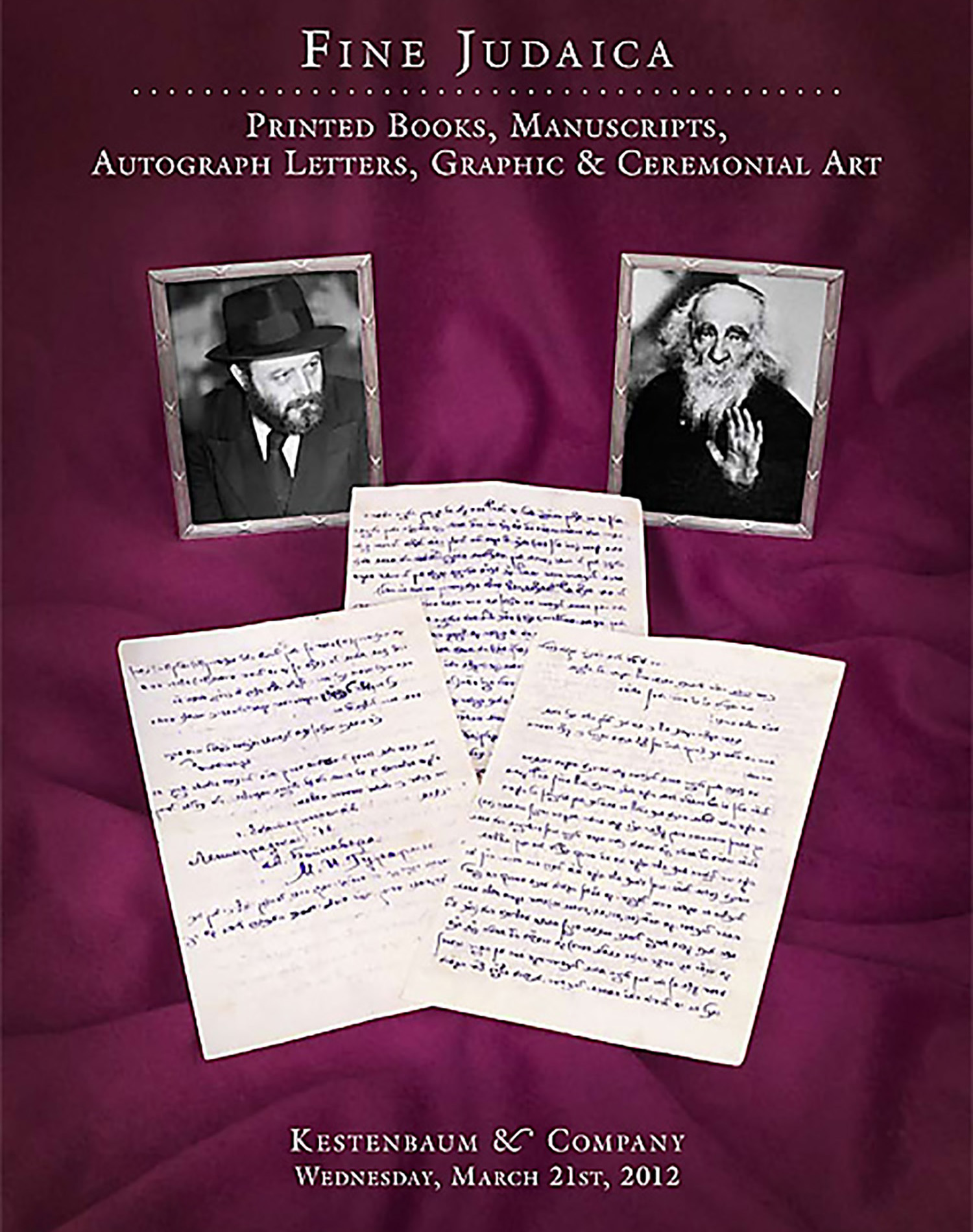Ephraim Luzzatto. Eileh Benei HaNeurim.

AUCTION 54 |
Wednesday, March 21st,
2012 at 1:00
Fine Judaica: Printed Books, Manuscripts Autograph Letters, Graphic & Ceremonial Art
Lot 46
(ANGLO-JUDAICA).
Ephraim Luzzatto. Eileh Benei HaNeurim.
London: G. Richardson & S. Clark 1766
Est: $5,000 - $7,000
<<First edition, reputedly printed in no more than 100 copies.>>
Born in 1729 in San Daniele del Friuli in the Venetian Republic, Ephraim Luzzatto graduated in medicine from the University of Padua in 1751 and was in London by 1760 where he served as medical officer of the Spanish and Portuguese Jews’ Hospital.
This innovative book of verse includes “occasional poems, moralistic poetry, and some erotica. Most important, however, are his love sonnets, which have, for the period, a remarkable lyrical quality”. Luzzatto’s songs of longing for Zion, are considered outstanding. Each of the 55 poems in this collection has, in lieu of a title, an indication of the subject or occasion upon which it was composed. These subjects are quite varied: one (no. 12) is an apology to Manasseh Gentili, Luzzatto’s respectable host at a Purim meal, at which the poet had overdone the mandatory inebriation, managing in consequence to leave the house stark naked; another (no. 32) concerns the venerable rabbi of Gorizia Jacob Gentili’s kidney problems; nos. 38-40 relate more generally to physicians, their obligations and foibles.
The production values of the Eileh Benei HaNeurim are exceptionally high, which is all the more remarkable since the work represents not only a literary landmark but also, as Cecil Roth observes, “a bibliographic curiosity, the only Hebrew book printed for Jews in England between about 1720 and 1770.” Luzzatto demonstrated the adaptabilty of Hebrew by abandoning the metres of mediaeval poetry, he exercised a major posthumous influence on the revival of an imaginative Hebrew literature during the 19th century. See David Mirsky, The Life and Work of Ephraim Luzzatto (1987).
